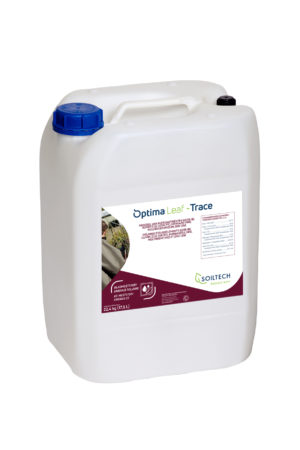Reducing abiotic stress
During cultivation, plants can experience abiotic stress. The better the crop is prepared for this eventuality, the lower the risk of yield losses.
Almost every crop is exposed to some form of stress during cultivation. Stress caused by a living organism, such as fungi or insects, is referred to as biotic stress. Abiotic stress is triggered by sub-optimal growth conditions caused by, for example, a scarcity of or too much water, extreme temperatures, salinity, mineral deficiencies and delayed growth or damage following crop protection treatments. As long as the stress-causing factor is not too persistent, in principle, crops can cope well with stress. However, conditions of prolonged or structural stress will elicit a stress response from the crops. Although this defence mechanism is effective, it uses a lot of the crop's energy, which can potentially reduce yields and adversely affect quality. Supporting the crop as much as possible in conditions of prolonged stress is therefore essential. The cause of biotic stress (a pest or disease) may only be controlled using an approved crop protection product. This article only addresses how to support the crop in abiotic stress conditions.
Stress at the start of cultivation
For crops, the start of cultivation is a period when the young (seedling) plant is very susceptible to weather influences and other threats. After all, the young plant has barely rooted and has not yet produced enough foliage to satisfy its energy needs. Supporting the crop in this crucial early phase is therefore vital.
Stress caused by extreme (weather) conditions
When a crop experiences a period of stress, caused, for example, by drought or low temperatures, or immediately following a spray treatment with a herbicide or fungicide, the plant will respond to the stress. A stress response requires the production of new proteins, and consequently a lot of amino acids and energy. Research has demonstrated that when a crop that is suffering stress is offered amino acids in the form of a foliar spray the plant can immediately utilise these amino acids to produce proteins. The crop can consequently direct less energy to its stress response and the effects of slowed growth and yield loss are reduced.
Stress caused by mineral deficiencies
In addition to the primary nutrients (N - P - K) and secondary nutrients (S - Ca - Mg), each crop also requires a quantity of trace elements. Despite the relatively low quantities of trace elements that are required, the lack of a single element can have a serious impact. After all, a chain is only as strong as its weakest link.
Optima Leaf-Trace is a foliar fertiliser consisting of a mixture of iron (Fe), manganese (Mn), zinc (Zn), copper (Cu), boron (B) and molybdenum (Mo). Optima Leaf-Trace provides the seven most important trace elements in the right ratio in just a single product. Due to its unique composition Optima Leaf-Trace prevents any mutually antagonistic effects of the trace elements. Apply Optima Leaf-Trace at least twice in the event of mineral deficiencies or a reduced mineral uptake by the roots at a dosage of 1.0 l/ha.

